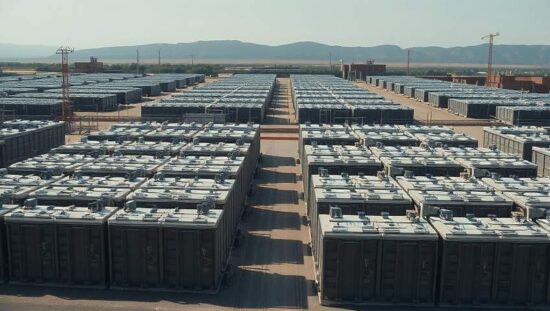Germany is witnessing a burgeoning boom in battery energy storage systems, intended to stabilize the nation’s rapidly expanding renewable energy grid. Preliminary data from the Bundesnetzagentur, the national regulatory authority, reveals a surge in applications for commercial battery storage connections, signaling a potential revolution in electricity distribution but also raising questions about infrastructure readiness and project feasibility.
In 2024 alone, over 9,710 applications for grid connections of commercial battery storage facilities have been submitted. While this represents a significant wave of planned infrastructure, the current operational capacity remains comparatively low, with just 921 such installations currently active at the medium-voltage level nationwide.
The scale of the projected expansion is particularly striking. The proposed capacity of the pending applications amounts to approximately 400 gigawatts of power and a storage capacity of roughly 661 gigawatt-hours. These figures dwarf the existing pool of operational batteries, which currently deliver a nominal grid power of 2.3 gigawatts and store approximately 3.2 gigawatt-hours.
Network operators have already pledged connections for roughly 3,800 battery storage projects, representing a combined power output of around 25 gigawatts and a storage capacity of around 46 gigawatt-hours. According to the Bundesnetzagentur, this potential capacity – enough to power the entire city of Munich, encompassing approximately 750,000 households, for nearly six days – highlights the transformative impact battery storage could have on Germany’s energy landscape.
However, the agency cautioned that the figures require contextualization. Many project applications are resubmitted multiple times and a connection pledge doesn’t guarantee realization. Concerns are emerging regarding whether grid infrastructure can adequately support the planned influx of battery storage facilities within the anticipated timeframe. Furthermore, questions linger about the long-term financial viability of these projects and the potential for speculative applications inflating the perceived demand. The impressive numbers underscore the ambition of Germany’s energy transition, but also serve as a critical reminder of the challenges ahead in integrating these technologies seamlessly and sustainably. The Bundesnetzagentur is likely to face increased scrutiny regarding its oversight and allocation of grid connections if these projections aren’t met with realistic infrastructure development.





